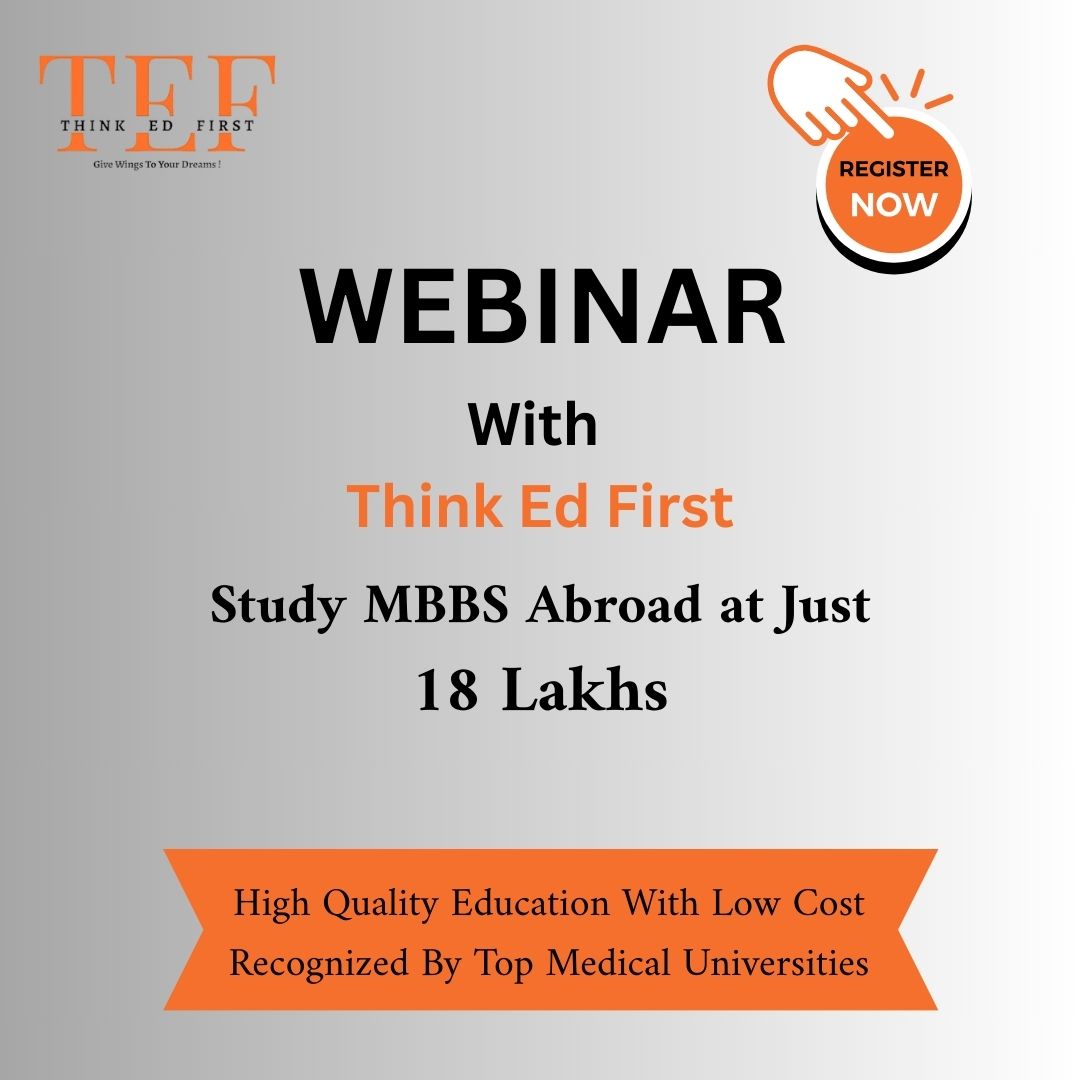Have you ever wondered how Russian MBBS graduates can pursue advanced medical training abroad without breaking the bank? The answer lies in a country known for its world-class healthcare system and tuition-free education.
Germany offers a unique opportunity for international medical graduates to enhance their skills through specialized programs. These programs are designed to provide hands-on experience and prepare doctors for global practice. However, mastering the language and passing essential exams are crucial steps in this journey.
In this guide, we explore the eligibility criteria, financial considerations, and the process of securing residency in Germany. Our goal is to help you understand the advantages and requirements for international medical graduates aiming to excel in their careers.
If you’re ready to take the next step in your medical journey, Russian medical universities provide a strong foundation for exploring global opportunities. Let’s dive into the details and unlock the potential of your medical career.
Introduction to PG Options for Russian MBBS Graduates
Exploring advanced medical training abroad opens doors to global opportunities for Russian MBBS graduates. With a strong foundation in medicine, these graduates can pursue specialized programs that enhance their skills and prepare them for international practice.
An Overview of the German Medical Landscape
Germany is renowned for its advanced healthcare system and world-class medical education. The country offers a structured process for international graduates to obtain a license and practice medicine. Here’s what makes it a top choice:
- High-quality training programs with hands-on experience.
- Recognition of MBBS qualifications from accredited institutions.
- Opportunities to work in a globally respected healthcare environment.
Our Motivation for Choosing PG Abroad
Pursuing postgraduate education abroad provides numerous advantages. It allows graduates to gain exposure to diverse medical practices and expand their professional networks. Here’s why we recommend this path:
- Access to cutting-edge research and technology in medicine.
- Improved career prospects with globally recognized qualifications.
- The chance to learn a new language and culture, enhancing personal growth.
To succeed, graduates must pass standardized tests and demonstrate language proficiency. These steps are essential for obtaining a valid license and entering the German medical system. With dedication and preparation, the journey to advanced medical training abroad becomes a rewarding experience.
Benefits of Pursuing Post-Graduation in Germany
Germany stands out as a top destination for medical graduates seeking advanced training and career growth. The country’s education system is globally recognized for its quality and innovation. For those aiming to specialize, Germany offers a unique blend of academic rigor and practical experience.
High-Quality Education and Research Opportunities
German universities are known for their excellence in medical education. They provide access to cutting-edge research and advanced technology. This ensures that graduates are well-prepared to meet global healthcare challenges.
Obtaining a degree in Germany enhances a medical graduate’s credentials. The programs focus on hands-on training, ensuring students gain real-world experience. This integration of theory and practice is a hallmark of German education.
Learning the German language is another key advantage. Proficiency in the language is essential for clinical practice and effective communication with patients. It also opens doors to a wider range of opportunities in the healthcare sector.
Attractive Salary and Career Growth
Germany offers competitive salary packages for medical professionals. During residency, graduates can earn enough to support themselves and their families. This financial stability is a significant benefit of pursuing advanced training in the country.
Career growth opportunities are abundant in Germany’s advanced healthcare system. Graduates can specialize in various fields, from surgery to internal medicine. The demand for skilled professionals ensures long-term job security and advancement.
Securing a recognized graduate qualification in Germany provides long-term benefits. It not only enhances career prospects but also opens doors to global opportunities. For medical graduates, this is a step toward achieving their professional goals.
PG in Germany after MBBS Russia: Eligibility and Requirements
Starting a medical career in a new country requires meeting specific academic and licensing standards. For those aiming to pursue advanced training, understanding the eligibility criteria and necessary steps is crucial. This section outlines the academic requirements, licensing prerequisites, and the documentation process to help you navigate the journey.
Academic Criteria and Licensing Prerequisites
To apply for postgraduate programs, your MBBS degree must be recognized by the German Medical Council. This involves a detailed evaluation of your academic credentials. Additionally, you must pass the Kenntnisprüfung (KP) exam if your degree is not fully equivalent to a German medical degree.
Language proficiency is another key requirement. A B2 level in German is necessary to start the application process, while most programs and hospitals require C1-level proficiency. Achieving this ensures effective communication with patients and colleagues.
Necessary Documentation and Evaluation Process
The documentation process involves submitting proof of your medical license, academic transcripts, and internship records. Each document is carefully evaluated to ensure it meets the standards set by the German Medical Council.
Securing hospital affiliations is also essential. This not only enhances your application but also provides valuable exposure to the German healthcare system. Building these connections can significantly impact your career trajectory.
| Step | Description | Timeline |
|---|---|---|
| Degree Recognition | Submit academic credentials for evaluation | 4-12 months |
| Language Proficiency | Attain B2/C1 level in German | 6-12 months |
| KP Exam | Pass the Kenntnisprüfung if required | 3-6 months |
| Document Submission | Provide proof of license, transcripts, and internships | 1-2 months |
Understanding these steps and preparing in advance can streamline your journey. For more details on studying at public universities in Germany, explore our comprehensive guide. With dedication and the right approach, you can achieve your career goals in the German medical field.
Navigating German Language Proficiency and Licensing Exams
Mastering the German language is a critical step for medical professionals aiming to practice abroad. Achieving advanced language skills ensures effective communication with patients and colleagues. It also meets the stringent standards set by the medical council.

Understanding German Language Levels and the FSP Exam
To practice medicine, you must demonstrate proficiency at the B2 or C1 level. These levels are essential for clinical practice and passing the Fachsprachprüfung (FSP) exam. The FSP assesses your ability to communicate medical concepts clearly and accurately.
Here’s a breakdown of the language levels and their significance:
| Level | Description | Use in Clinical Practice |
|---|---|---|
| B2 | Intermediate. Can discuss medical topics with some fluency. | Required for initial applications and basic communication. |
| C1 | Advanced. Can handle complex medical discussions with ease. | Necessary for residency programs and patient interactions. |
Preparing for the FSP exam involves focused study and practice. This exam is a key step in meeting the standards of the medical council. It ensures you can communicate effectively in a clinical setting.
Here are practical steps to develop your language skills:
- Enroll in language courses tailored for medical professionals.
- Practice speaking with native speakers to improve fluency.
- Use medical terminology in everyday conversations.
Mastering these skills adds a valuable post-qualification to your training. It also expedites your acceptance into competitive residency programs. With dedication, you can meet the language benchmarks and achieve your career goals.
Step-by-Step Guide to Securing Residency and Hospitation
Securing a residency in a foreign healthcare system requires careful planning and strategic execution. From preparing a compelling application package to building professional networks, each step plays a crucial role in achieving your career goals. This guide provides a detailed roadmap to help you navigate the process with confidence.
Preparing Your Application Package
A well-organized application package is essential for standing out in a competitive system. Start by gathering all necessary documents, including language certificates, academic transcripts, and recommendation letters. Tailor your CV and cover letter to highlight your skills and align with the specific requirements of the hospital or program.
Here’s a checklist to ensure your application is complete:
- Certified copies of your medical degree and license.
- Proof of language proficiency (B2/C1 level).
- Detailed CV formatted according to German standards.
- Personalized cover letter addressing the hospital’s needs.
The evaluation process can take several months, so submit your application well in advance. Following up with hospitals or programs shows your dedication and can expedite the review process.
Building Professional Networks and Relationships
Networking is a powerful tool for securing hospitation opportunities. Connect with hospital staff, mentors, and alumni to gain insights into the system and build meaningful relationships. Attend medical conferences, join professional associations, and engage in online forums to expand your network.
Here are practical strategies to enhance your networking efforts:
- Reach out to professionals in your desired field for informational interviews.
- Participate in workshops or seminars to meet like-minded individuals.
- Leverage social media platforms like LinkedIn to connect with potential mentors.
Building these connections not only increases your chances of securing a residency but also provides valuable knowledge about the local healthcare system. This understanding can positively impact your eventual salary and career opportunities.
| Step | Description | Timeline |
|---|---|---|
| Document Preparation | Gather and certify all required documents | 1-2 months |
| Application Submission | Submit tailored CV, cover letter, and supporting materials | 1 month |
| Follow-Up | Contact hospitals or programs to check application status | Ongoing |
| Networking | Attend events, connect with professionals, and build relationships | 3-6 months |
By following this step-by-step guide, you can streamline your journey toward securing a residency. For more insights on affordable medical education abroad, explore our comprehensive resources. With dedication and the right approach, you can achieve your career goals in the global healthcare system.
Financial Considerations and Cost Breakdown
Understanding the financial aspects of advanced medical training abroad is essential for making informed decisions. We provide a detailed analysis of costs, earning potential, and budgeting strategies to help you plan effectively.
Tuition-Free Education and Earning Potential During Residency
One of the most significant advantages of pursuing advanced training is the opportunity to study without tuition fees. Many programs are tuition-free, allowing you to focus on your education without financial stress.
During residency, you can earn a competitive salary. On average, residents receive around €2,300 per month, which covers living expenses and allows for savings. This financial stability ensures you can support yourself while gaining valuable experience.
- Tuition-free programs reduce the overall cost of training.
- Residency stipends provide financial independence.
- Savings potential is significant, with monthly savings of around €1,600.
Budgeting for Living Expenses and Course Fees
While tuition is often free, other costs must be considered. Living expenses, language courses, and exam fees are part of the financial planning process. Here’s a breakdown of typical costs:
| Expense | Cost (EUR) | Cost (INR) |
|---|---|---|
| Living Expenses (Monthly) | €700 | ₹52,500 |
| Language Courses (B1-C1) | €4,400 | ₹330,000 |
| Exam Fees (FSP/KP) | €1,500 | ₹112,500 |
Budgeting wisely ensures you can manage these expenses without compromising your training. We recommend creating a detailed financial plan to track your spending and savings.
By understanding these financial aspects, you can make the most of this opportunity and focus on achieving your career goals. With careful planning, advanced training abroad becomes an accessible and rewarding experience.
Comparing PG in Germany with Other Global Options
Choosing the right destination for advanced medical training can shape your career trajectory. While many countries offer excellent programs, each has unique advantages and challenges. We compare postgraduate options in Germany with those in the USA, UK, Canada, Australia, and Scandinavian countries to help you make an informed decision.
Exam Processes and Language Requirements
In the USA, medical graduates must pass the USMLE, a rigorous three-step exam. This process is time-consuming and requires extensive preparation. In contrast, Germany focuses on language proficiency, with the Fachsprachprüfung (FSP) exam assessing medical communication skills. Achieving a B2 or C1 level in German is essential for clinical practice.
Other countries like the UK and Canada also emphasize standardized tests, such as the PLAB and MCCQE. However, Germany’s focus on language skills ensures better integration into the healthcare system. This approach benefits students who are willing to invest time in mastering the language.
Research Opportunities and Hands-On Training
German programs are renowned for their emphasis on research and practical experience. Universities provide access to cutting-edge technology and collaborative projects. This hands-on training prepares students for global healthcare challenges.
In comparison, the USA offers extensive research opportunities but often at a higher cost. Scandinavian countries also provide excellent training but may have limited slots for international students. Germany’s tuition-free programs and monthly stipends make it a more accessible option.
Qualification Recognition and Career Benefits
Germany’s medical qualifications are globally recognized, opening doors to diverse career opportunities. The country’s advanced healthcare system ensures long-term job security and growth. Graduates can specialize in various fields, from surgery to internal medicine.
In contrast, the USA and UK offer competitive salaries but require significant financial investment. Canada and Australia provide excellent career prospects but have stringent immigration policies. Germany’s comprehensive support for international students sets it apart.
- German programs focus on language proficiency, ensuring better integration.
- Research opportunities and hands-on training are superior in Germany.
- Qualification recognition in Germany leads to global career benefits.
By evaluating these factors, students can choose the best path for their career goals. Germany’s unique advantages make it a top choice for advanced medical training.
Conclusion
Embarking on a medical career abroad requires careful planning and dedication. We’ve outlined the key steps to help you succeed, from mastering language skills to meeting licensing requirements. The advantages of advanced training in a robust healthcare system are undeniable, offering both professional growth and financial stability.
Support systems for international graduates make this journey smoother. By following the step-by-step guidance provided, you can confidently navigate the process. The recognition of foreign medical qualifications ensures your efforts lead to a globally respected career.
If you’re considering this path, we’re here to help. For more insights on pursuing medical education abroad, explore our guide on MBBS without NEET for Indian students. Take the next step toward achieving your dreams with confidence.





